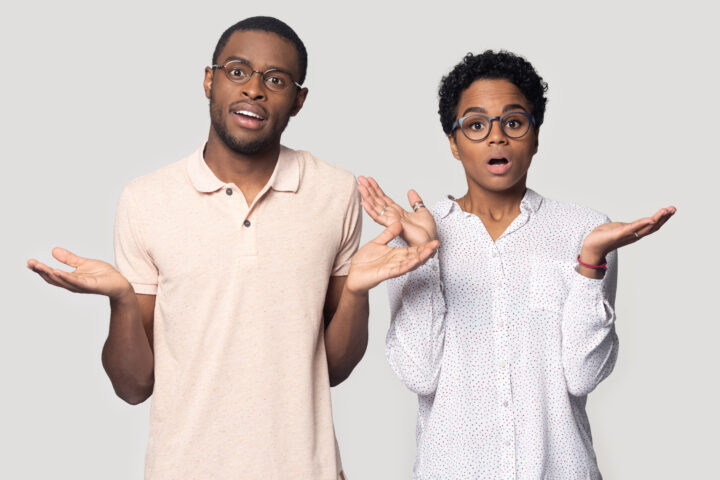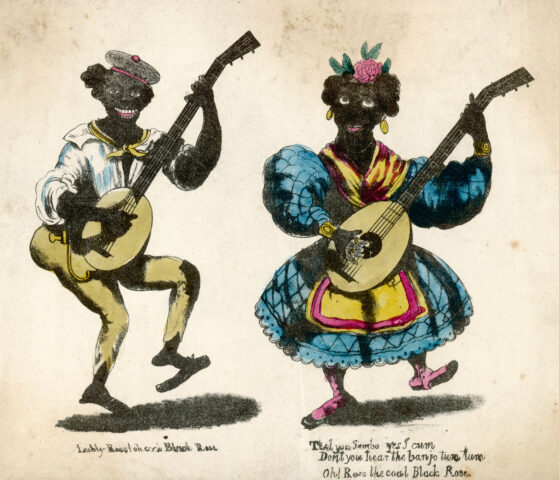Blackface or enacting the blackface as some people understand it to be, stands as one of the subtle ways that racism rears its ugly head in the workplace. Some claim to be oblivious about the impact of this derogatory face painting that portrays the “blackness”, wearing of unkept wigs to depict a black afro and bizarre emphasis of the colour of lips in a manner that is uncomfortable and flat out offensive.
Just days into a new job at Payone (Worldline subsidiary), I walked into a Christmas party to be confronted by a white colleague who I had been introduced to earlier that day, dressed up as blackface painting. A full array of senior management and HR staff were in attendance as revellers, and it was a baptism of fire for me, having never experienced this at any other previous employer. Besides awkward looks from some people, laughter from others, the HR staff were silent during the event and there has been no apology to those likely to have taken offence.
To keep the legal departments off my back, it is prudent before I proceed that I differentiate Payone the Worldline subsidiary from any other namesake. Payone is my former employer and a provider of cashless payment solutions operating in Europe and are a subsidiary of Worldline SA who hold 60% stake in holding company Worldline Payone Holding GmbH.
It is also important to note that most staff that I engaged with at the company were welcoming and genuinely kind and warm people. Nevertheless, it is important that I am not silent on my experiences at Payone in order that change can be encouraged at such large companies and so that younger minorities either currently at the company or finding their feet in their career may not suffer the same detriment. Payone, their senior directors and HR were and are aware of this incident and have remained unapologetic to those that may have been offended albeit that is not the objective of this article. This article is part of a series focussing on freely expressed views via raw and true stories from my corporate experiences and real-life examples; aiming to achieve change through transparency
Where and how did it all start?
Blackface’s roots or the racist portrayal of the black race can be traced back to centuries-old European theatrical productions, although the specific time and dates remain unattainable as most of the history of that time has been whitewashed. As drama became popular, the practice quickly found its way across the world and became significant in the United States around the 18th century when European immigrants carried the genre over and staged performances at seaports along the Northeast. In due time, this ridiculing act became a stereotypical character portrayed in western plays or productions whenever a black character was depicted.

The demeaning part was the fact that these black mimicking roles were often played by non-black people in a dehumanising caricature. Such caricatures promoted comments such as “they seem a happy race of beings and if you did not know it you would never imagine that they were slaves” [Boskin, 1989, p. 42].
After the 1930s and into the civil rights movement, the portrayal of blackface in mainstream media dwindled to a degree. But throughout the past few decades, disparaging preconceptions of black people and those with dark skin have persisted. For instance, the use of blackface to impersonate well-known African Americans for Halloween continues to be a problem. Even Payone (Worldline subsidiary) in 2022 cannot bring itself to a mere apology or even recognition that it was at best inappropriate at a Christmas party with at most only 3 or 4 black people in attendance amongst approximately 400 or so staff.
so why exactly is blackface so offensive?
1. It portrays black people as a subject of mockery and it is simply put, triggering
The blackface costume is triggering in that your colleague as an example, who happens to be black may only associate such costuming with the devastating and historic portrayal described above. That is not your fault it is not his fault, but it is considerate and encourages awareness of how others may feel. Moreover, as with all other discriminative conduct it is humiliating demoralising and likely to cause workplace upset.
If it is ignored and costumes are worn depicting such caricatures, movie stars or any other person, it may set the pace for further mockery of a racial nature in the working environment. This could move on to the sharing of inappropriate comments or memes due to the bar being lowered in terms of what the employer may tolerate, thus causing injury to the recipient of such behaviour.

2. Put your motivations on the side; the subject is rooted in the pains suffered by black people
In the same way it would be inappropriate to wear a T-shirt stating “all brown people out” to a public gathering under the guise “I had no intention to offend?”, it would equally be offensive to make up in black face whilst treating it as “not a big deal”.
3. Read between the lines; it drives the nonsensical notion that black people are inferi
If the only way you can portray a black person is to wear an afro, darken your skin colour and paint your lips blood red then it is axiomatic that little thought has gone into the consideration of your colleagues. The same goes for the leadership particulalrly where they choose to do zilch, zero nothing. I mean, there are tons of positive things that can be portrayed, there are black legends and heroes that have helped to shape humans in terms of their historical and modern contribution.
Why not put forward the positives?!
The moment you have the blackface on, you are likely to emotionally transport that black person to one of the darkest periods of humanity. Whilst some of us of all kinds are working to continue to move things forward, large influential corporations who sit on the fence in scenarios such as this unfortunately are then not part of a solution.
If this is the first time you are hearing about the dark history of the black face and consider it “no big deal”, there is an abundance of information in today’s digital age and you are free to expand your learning on the issue. Perhaps consider the impact that black people have had in education, space travel, fashion, sports, lifestyle, music, mathematics and so many others milieus. There are an abundance of historic and current personalities with all the positive cues in which inspiration may be drawn.





